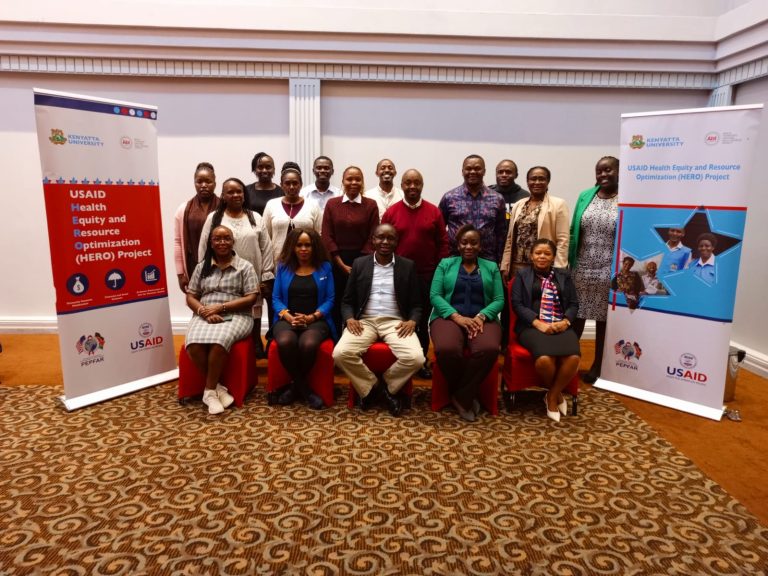The Constitution of Kenya 2010 and the national government blueprint Vision 2030 mandates the State to provide the highest attainable standard of health for all its citizens. These policy documents capture the call by the World Health Organization for Universal Health Coverage and the global commitment under the sustainable development goal 3. The Ministry of Health developed Kenya’s Universal Health Coverage Policy 2020-2030 to drive improvement in health outcomes in line with global commitments and the Constitution of Kenya 2010. During the SDGs mid-term review, governments including Kenya renewed their political commitment to fund health and prioritize primary healthcare as a key lever towards UHC attainment. Kenya is implementing reforms geared towards accelerating the journey to Universal Health Coverage. As all stakeholders embrace these ambitious reforms, strengthening the planning process to work towards this common objective is paramount.

The division of Health Financing in the Ministry of Health has spearheaded the implementation of the UHC reforms through the coordination of partners to deliver on activities as captured in the ministry annual work plans. The function of the health financing division is to develop, implement, and review health financing policies. The division spearheads resource mobilization, strategic purchasing initiatives, costing, and health financing research. The USAID HERO project on the dates of the 5th and 8th of July 2024, supported the division of health financing to convene a 2-day workshop to review the 2023-2024 work plan implementation and develop the 2024/25 AWP and budget. USAID HERO project seeks to improve evidence generation, health financing, and social protection systems for better health outcomes. Through this support, the project had the objective of aligning its activities to the division of health financing priorities.
In reviewing the 2023/24 work plan, the directorate with support from its partners had accomplished activities towards support for the UHC reforms. These included support for Social Health Authority transition activities, the costing of health services (levels 1, 2, and 3), development of the SHA benefits package and tariffs and the development of the costing protocol. The project participated in all these activities as a convener, facilitator, and technical support provider as they were aligned with the project priorities. However, because of the national focus on SHA transition activities, some critical activities were not implemented. These included the costing of level 4, 5, and 6 services, the development of the resource mobilization strategy, the writing of the training curriculum, and the development of the donor transition framework. It’s important to note that some activities were not implemented because of the resource constraints.
From the 2024/26 AWP developed, the following activities are related to strategic purchasing and domestic resource mobilization and will provide a platform for the project to support the division and the ministry at large. Evidence generation through costing, studies, and surveys, the mid-term review of the health financing strategy, and the establishment of the benefits and tariffs advisory panel. Other activities were: establishment and operationalization of the health financing Technical Working Group, and strengthening of the Thematic Technical Committees; roll out of Social Health Insurance communication strategy; development of donor transition framework, development of the SHA service chatter; development of provider contracting framework and 3rd party claims management for SHA; development of the SHA performance indicators; and performance review of the SHA implementation at all levels.
The project identified these activities that will be supported through technical assistance, financial facilitation or participation. The inadequacy of resources or lack thereof is even more of a reason why a robust planning and priority aligning process is needed to prevent duplication and ensure the achievement of more with less. The alignment will ensure project activities are implemented in collaboration with the division and with the support of all the stakeholders in the health sector to contribute to the larger objectives of the UHC reform policies.
